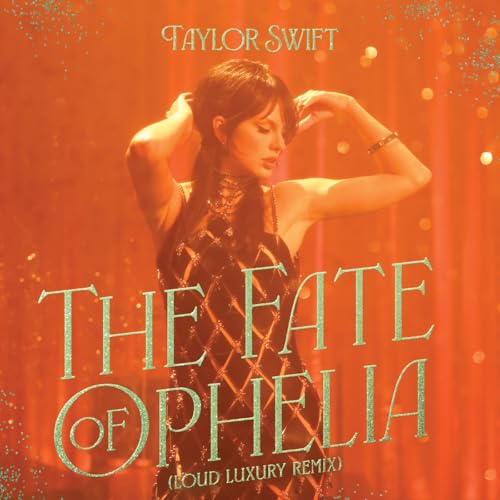Player FM - Internet Radio Done Right
2,451 subscribers
Checked 6d ago
Ajouté il y a neuf ans
Contenu fourni par BBC and BBC Radio 4. Tout le contenu du podcast, y compris les épisodes, les graphiques et les descriptions de podcast, est téléchargé et fourni directement par BBC and BBC Radio 4 ou son partenaire de plateforme de podcast. Si vous pensez que quelqu'un utilise votre œuvre protégée sans votre autorisation, vous pouvez suivre le processus décrit ici https://fr.player.fm/legal.
Player FM - Application Podcast
Mettez-vous hors ligne avec l'application Player FM !
Mettez-vous hors ligne avec l'application Player FM !
The Life Scientific
Tout marquer comme (non) lu
Manage series 1301276
Contenu fourni par BBC and BBC Radio 4. Tout le contenu du podcast, y compris les épisodes, les graphiques et les descriptions de podcast, est téléchargé et fourni directement par BBC and BBC Radio 4 ou son partenaire de plateforme de podcast. Si vous pensez que quelqu'un utilise votre œuvre protégée sans votre autorisation, vous pouvez suivre le processus décrit ici https://fr.player.fm/legal.
Professor Jim Al-Khalili talks to leading scientists about their life and work, finding out what inspires and motivates them and asking what their discoveries might do for us in the future
343 episodes
Tout marquer comme (non) lu
Manage series 1301276
Contenu fourni par BBC and BBC Radio 4. Tout le contenu du podcast, y compris les épisodes, les graphiques et les descriptions de podcast, est téléchargé et fourni directement par BBC and BBC Radio 4 ou son partenaire de plateforme de podcast. Si vous pensez que quelqu'un utilise votre œuvre protégée sans votre autorisation, vous pouvez suivre le processus décrit ici https://fr.player.fm/legal.
Professor Jim Al-Khalili talks to leading scientists about their life and work, finding out what inspires and motivates them and asking what their discoveries might do for us in the future
343 episodes
Tous les épisodes
×1 Eleanor Schofield on conserving Tudor warship the Mary Rose 28:20
28:20  Lire Plus Tard
Lire Plus Tard  Lire Plus Tard
Lire Plus Tard  Des listes
Des listes  J'aime
J'aime  Aimé28:20
Aimé28:20
In July 1545, King Henry VIII watched from Southsea Castle on England's south coast as his fleet sailed out to face the French - only to witness his prized warship, the Mary Rose, sink before his eyes. Raised from the Solent in 1982, the ship is now the centrepiece of the Mary Rose Museum, along with thousands more artefacts that were recovered from the seabed. But keeping the 500-year-old ship and its associated Tudor relics in good condition is no small task, which is where Dr Eleanor Schofield comes in. As Director of Collections at the Mary Rose Trust and a materials engineer by training, Eleanor has spent years tackling the unique scientific challenges of conserving centuries-old wood and metal. From the United States to Portsmouth, Eleanor's research is helping ensure this iconic vessel remains 'ship-shape' for generations to come. In a special edition of The Life Scientific, recorded in front of an audience at the museum in Portsmouth's Historic Dockyards, Professor Jim Al-Khalili discovers how cutting-edge science is keeping history afloat. Presented by Jim Al-Khalili Produced by Lucy Taylor for BBC Studios…
1 George Church on reimagining woolly mammoths and virus-proofing humans 28:21
28:21  Lire Plus Tard
Lire Plus Tard  Lire Plus Tard
Lire Plus Tard  Des listes
Des listes  J'aime
J'aime  Aimé28:21
Aimé28:21
"My ideas are often labelled as impossible, or useless, or both. Usually when people say that I'm on the right track." George Church is a geneticist, molecular engineer, and one of the pioneers of modern genomics. He's also someone who makes a habit of finding solutions to the seemingly impossible. Over the course of his career so far, George developed the first method for direct genomic sequencing, helped initiate the Human Genome Project, and founded the Personal Genome Project: making huge quantities of DNA data publicly available for research. Today, as a professor at Harvard Medical School and MIT, he’s working on some of the most headline-grabbing - and controversial - science on the planet: from the so-called "de-extinction" of woolly mammoths, to growing transplant-suitable organs in pigs, to virus-proofing humans. When inspiration strikes, there seems to be little that will slow him down - even the fact that he has narcolepsy, the neurological disorder that causes sudden sleep attacks. In fact, as George tells Professor Jim Al-Khalili, some of his best ideas come in those moments between waking and sleep... Presented by Jim Al-Khalili Produced by Lucy Taylor for BBC Studios…
1 Gareth Collett on a career in bomb disposal 28:29
28:29  Lire Plus Tard
Lire Plus Tard  Lire Plus Tard
Lire Plus Tard  Des listes
Des listes  J'aime
J'aime  Aimé28:29
Aimé28:29
Movies might have us believe that bomb disposal comes down to cutting the right wire. In fact, explosive devices are complex and varied - and learning how to dispose of them safely involves intense training, as well as the ability to stay calm under pressure. This was the world of Dr Gareth Collett, a retired British Army Brigadier General and engineer, specialising in bomb disposal; whose 32-year military career took him around the world, including heading up major ordnance clearance projects in Iraq and Afghanistan. After retiring from the army, Gareth became a university lecturer – but following his diagnosis with bladder cancer, started researching a possible link between bomb disposal veterans and higher rates of urological cancers. In conversation with Professor Jim Al-Khalili, Gareth discusses this ongoing research, dealing with PTSD - and why he just can't watch Oscar-winning movie The Hurt Locker... Presented by Jim Al-Khalili Produced by Lucy Taylor for BBC Studios…
1 Sonia Gandhi on building model brains to tackle Parkinson’s disease 28:23
28:23  Lire Plus Tard
Lire Plus Tard  Lire Plus Tard
Lire Plus Tard  Des listes
Des listes  J'aime
J'aime  Aimé28:23
Aimé28:23
Many people will be familiar with Parkinson’s disease: the progressive brain disorder that causes symptoms including tremors and slower movement, leading on to serious cognitive problems. You might not know that it’s the fastest-growing neurological condition in the world. Today it affects around 11.8 million people and that’s forecast to double by 2030. Dr Sonia Gandhi is one of the scientists working to change that trend. As Professor of Neurology at University College London and Assistant Research Director at the Francis Crick Institute, her work involves using stem cells to build models of the human brain, helping to drive the development of drugs and other therapies for Parkinson’s patients. Talking to Professor Jim Al-Khalili, Sonia explains why this destructive condition is on the rise - and the promising routes they're studying to find new ways to tackle it. Presented by Jim Al-Khalili Produced by Lucy Taylor for BBC Studios For details of organisations that offer advice and support to anyone affected by Parkinson's Disease, please go online to bbc.co.uk/actionline.…
1 Mark O'Shea on close encounters with venomous snakes 28:28
28:28  Lire Plus Tard
Lire Plus Tard  Lire Plus Tard
Lire Plus Tard  Des listes
Des listes  J'aime
J'aime  Aimé28:28
Aimé28:28
1 Kevin Fong on medical planning for Mars and Earth-based emergencies 28:39
28:39  Lire Plus Tard
Lire Plus Tard  Lire Plus Tard
Lire Plus Tard  Des listes
Des listes  J'aime
J'aime  Aimé28:39
Aimé28:39
There can't be many people in the world who've saved lives in hospital emergency rooms and also helped care for the wellbeing of astronauts in space – but Kevin Fong’s career has followed a singular path: from astrophysics and trauma medicine, to working with NASA, to becoming an Air Ambulance doctor. Kevin is a consultant anaesthetist and professor of public engagement and innovation at University College London. He’s worked on the front line in hospitals, dealing with major incidents and helping shape policy; but he's also stayed true to his childhood passion for space, working on multiple projects with NASA and even going through the astronaut application process himself. As if that wasn’t enough, he’s also become a well-known figure in science broadcasting through his various radio and TV shows. Speaking to Professor Jim Al-Khalili, Kevin admits it hasn't always been an easy path – but his passion for both space and medicine have got him through. And today, he's channelling his energies into ensuring we protect the NHS's most precious commodity: its staff. Presented by Jim Al-Khalili Produced by Lucy Taylor This programme was a BBC Studios Audio prouction for Radio 4.…
1 Dame Pratibha Gai on training atoms to do what we want 28:23
28:23  Lire Plus Tard
Lire Plus Tard  Lire Plus Tard
Lire Plus Tard  Des listes
Des listes  J'aime
J'aime  Aimé28:23
Aimé28:23
Chemical reactions are the backbone of modern society: the energy we use, the medicines we take, our housing materials, even the foods we eat, are created by reacting different substances together. If we zoom in, it’s the atoms within these substances that rearrange themselves to give rise to new substances with the properties we need. However, chemical reactions are far from perfect. They're often inefficient and their waste products can be harmful to the environment. Getting to grips with what goes on at the scale of individual atoms has long been a sticking point. Dame Pratibha Gai has spent much of her career pioneering novel microscopes to bring this seemingly inaccessible atomic world into sharp focus. Now Emeritus Professor of Chemistry at York University, her microscope, known as the environmental transmission electron microscope, is housed in labs around the world. It allows scientists, like herself, to observe chemical reactions in real-time, in exquisite atomic detail, and tinker with them to create products that are not only better for all of us, but also the environment. Presented by Jim Al-Khalili Produced by Beth Eastwood A BBC Studios Audio production for Radio 4…
1 Catherine Heymans on the lighter side of the dark universe 28:34
28:34  Lire Plus Tard
Lire Plus Tard  Lire Plus Tard
Lire Plus Tard  Des listes
Des listes  J'aime
J'aime  Aimé28:34
Aimé28:34
Have you ever considered the lighter side of dark matter? Comedy has proved an unexpectedly succesful way to engage people with science - as today's guest knows first-hand. Astrophysicist Catherine Heymans is a Professor at the University of Edinburgh and the current Astronomer Royal for Scotland. She’s spent her career studying dark matter and dark energy: the mysterious ingredients that make up an estimated 95% of our cosmos, but which we still know surprisingly little about. Using increasingly powerful telescopes, both on earth and in space, Catherine has spent years building detailed maps of dark matter - even to the extent of capturing rare images of this mysterious cosmic component. On top of her research achievements, she's committed to making science accessible to all; not least by taking an astronomy-themed comedy show to the Edinburgh Festival and beyond. In conversation with Professor Jim Al-Khalili, Catherine talks about her passion for sharing the joys of astrophysics - and reveals how health challenges over the last few years have forced her to readdress her career, her ambitions and even her sense of self... Presented by Jim Al-Khalili Produced by Lucy Taylor…
1 Tim Coulson on how predators shape ecosystems and evolution 28:36
28:36  Lire Plus Tard
Lire Plus Tard  Lire Plus Tard
Lire Plus Tard  Des listes
Des listes  J'aime
J'aime  Aimé28:36
Aimé28:36
As a young man, traveling in Africa, Tim Coulson - now Professor of Zoology at the University of Oxford - became seriously ill with malaria and was told a second bout would probably kill him. Aged only 20, this brush with his own mortality led him to promise himself he would write a complete guide to science: life, the universe and everything. His aim was to understand the existence of all living things - no mean feat! Over the course of a colourful career, Tim's work has taken him all over the world: including researching wolves in Yellowstone National Park, little fish called guppies in the rivers of Trinidad and silvereye birds on Heron Island on the Great Barrier Reef. Using complicated mathematical models he builds up a picture of ecosystems seeking to explain how predators impact both evolution and ecosystems. And finally, more than thirty years after he vowed to write the book that would explain everything we know about science, he's done just that. In conversation with Professor Jim Al-Khalili, Tim talks about his journey from youthful ambition to science demystifier. Presented by Jim Al-Khalili Produced by Geraldine Fitzgerald…
1 Claudia de Rham on playing with gravity 28:21
28:21  Lire Plus Tard
Lire Plus Tard  Lire Plus Tard
Lire Plus Tard  Des listes
Des listes  J'aime
J'aime  Aimé28:21
Aimé28:21
Claudia de Rham has rather an unusual relationship with gravity. While she has spent her career exploring its fundamental nature, much of her free time has involved trying to defy it - from scuba diving in the Indian Ocean to piloting small aircraft over the Canadian waterfalls. Her ultimate ambition was to escape gravity’s clutches altogether and become an astronaut, a dream that was snatched away by an unlikely twist of fate. However, Claudia has no regrets - and says defying gravity for much of her life has helped her to truly understand it. As Professor of theoretical physics at Imperial College London, she now grapples with deep mathematics, where the fields of particle physics, gravity and cosmology intersect, on a quest to understand how the universe really works. She is a pioneer of the theory of massive gravity, a theory which could take us beyond even Einstein’s theory of relativity and shed light on why the universe is expanding at an ever-increasing rate. Presented by Jim Al-Khalili Produced by Beth Eastwood…
1 Neil Lawrence on taking down the 'digital oligarchy' and why we shouldn't fear AI 28:35
28:35  Lire Plus Tard
Lire Plus Tard  Lire Plus Tard
Lire Plus Tard  Des listes
Des listes  J'aime
J'aime  Aimé28:35
Aimé28:35
When you think of Artificial Intelligence, does it inspire confidence, or concern? Although it's now generally accepted that this technology will play a major role in our future, a lot of conversations around AI and machine learning come back to the argument over us losing control and robots taking over. Happily, Neil Lawrence has a more optimistic view of the power of AI, and how we might navigate the potential pitfalls. Neil is the DeepMind Professor of Machine Learning at the University of Cambridge, and over the course of his career has been involved in deploying AI and machine learning in both academic and commercial scenarios, with a stint at Amazon as well as working across fields as varied as movie animation, Formula 1 strategy, and medical research. Speaking with Professor Jim Al-Khalili, Neil says ultimately his efforts are all about making a difference to our everyday lives - and that we need to learn how to embrace AI, albeit with a healthy dollop of scepticism; not least when it comes to how our data is used, and the power of 'the digital oligarchy'... Presented by JIm Al-Khalili Produced for BBC Studios by Lucy Taylor…
1 Liz Morris on Antarctic adventures and the melting polar ice sheets 28:28
28:28  Lire Plus Tard
Lire Plus Tard  Lire Plus Tard
Lire Plus Tard  Des listes
Des listes  J'aime
J'aime  Aimé28:28
Aimé28:28
A frozen, white world at the far-reaches of the globe, where you're surrounded by snow and silence, might sound rather appealing. Factor in temperatures that drop to -57°C and a few of us might be put off - but for glaciologist Liz Morris, that's very much her happy place. Liz is an Emeritus Associate at the University of Cambridge’s Scott Polar Research Institute, and was among the first British women scientists to work on the planet’s coldest continent, Antarctica. Over the course of her career, Liz has gathered vital data on polar ice sheets and how they’re affected by climate change. She's also made numerous research trips across the Greenland Ice Shelf, and has a glacier named after her in Antarctica. In conversation with Professor Jim Al-Khalili, Liz discusses her fascination with glaciers and ice - and explains her unwavering determination to break into what was once a heavily male-dominated field. Presented by Jim Al-Khalili Produced for BBC Studios by Lucy Taylor…
1 Anthony Fauci on a medical career navigating pandemics and presidents 45:05
45:05  Lire Plus Tard
Lire Plus Tard  Lire Plus Tard
Lire Plus Tard  Des listes
Des listes  J'aime
J'aime  Aimé45:05
Aimé45:05
Welcome to a world where medicine meets politics: a space that brings together scientific research, government wrangling, public push-back and healthcare conspiracies… Dr Anthony Fauci was the Director of America’s National Institute of Allergy and Infectious Diseases for nearly four decades, during which time he not only helped study, treat and prevent viruses such as HIV/AIDS and Covid-19; he also advised seven US Presidents, from Ronald Regan through to Joe Biden. Along the way, Tony Fauci's picked up a public profile and taken a fair amount of flack; not least because of his complicated relationship with President Donald Trump. But he's also made great strides in medical research and policy, from working with activists who initially challenged him on the government response to HIV/AIDS - to spearheading the USA's PEPFAR project to share vital medication with developing nations. In a candid conversation with Professor Jim Al-Khalili, Tony discusses his childhood in Brooklyn, the dark early days of the HIV/AIDS epidemic, lessons from the Covid-19, his hopes and fears for the future of American health policy – and his reaction to that pre-emptive pardon from President Biden. Presented by Jim Al-Khalili Produced for BBC Studios by Lucy Taylor…
1 Brian Schmidt on Nobel Prize-winning supernovae and the joys of making wine 28:39
28:39  Lire Plus Tard
Lire Plus Tard  Lire Plus Tard
Lire Plus Tard  Des listes
Des listes  J'aime
J'aime  Aimé28:39
Aimé28:39
Have you ever pondered the fact that the universe is expanding? And not only that, it's expanding at an increasing speed - meaning everything around us is getting further and further away? If that isolating thought makes you feel slightly panicked, don't worry: this programme also contains wine! Brian Schmidt is a Distinguished Professor of Astrophysics at the Australian National University, known for his work on supernovae: massive explosions that take place when stars come to the ends of their lives. They are among the most energetic events in the universe and incredibly difficult to find; but that’s what his High-Z Supernova Search Team did, identifying enough of these rare and distant explosions to measure just how fast they were moving away from us. This led them to the realisation that, contrary to long-held belief in cosmology, the expansion of the universe was speeding up; a discovery which earned Brian a share of the 2011 Nobel Prize for Physics. As if that wasn't enough, he's gone on to discover one of the earliest stars in the universe; run a university; and become a winemaker, at his very own vineyard just outside Canberra. In a conversation spanning the genius phraseology of writer Douglas Adams, the importance of pisco sours, and the similarities between astronomy and viticulture, Brian tells Professor Jim Al-Khalili how his supernovae breakthrough paved the way for a revolution in astronomy - and where the field needs to go next... Presented by Jim Al-Khalili Produced for BBC Studios by Lucy Taylor…
1 Jacqueline McKinley on unearthing bones and stories at Britain's ancient burial sites 28:32
28:32  Lire Plus Tard
Lire Plus Tard  Lire Plus Tard
Lire Plus Tard  Des listes
Des listes  J'aime
J'aime  Aimé28:32
Aimé28:32
How much information can you extract from a burnt fragment of human bone? Quite a lot, it turns out - not only about the individual, but also their broader lives and communities; and these are the stories unearthed by Jacqueline McKinley, a Principal Osteoarchaeologist with Wessex Archaeology. During her career, Jackie has analysed thousands of ancient burial sites across the British Isles, bringing to life the old traditions around death via often cremated human remains. She's also assisted criminal investigators with forensic analysis, and contributed to some of the UK's best-loved archaeological TV shows. And one thing she’s absolutely clear about: far from being macabre, osteoarchaeology is more about the living, than the dead... In conversation with Professor Jim Al-Khalili, Jackie talks about the stories we can derive from skeletal remains, how western attitudes to death have gone through a major recent shift, and why she's kept some of her late father's bones. Presented by Jim Al-Khalili Produced for BBC Studios by Lucy Taylor…
Bienvenue sur Lecteur FM!
Lecteur FM recherche sur Internet des podcasts de haute qualité que vous pourrez apprécier dès maintenant. C'est la meilleure application de podcast et fonctionne sur Android, iPhone et le Web. Inscrivez-vous pour synchroniser les abonnements sur tous les appareils.

























